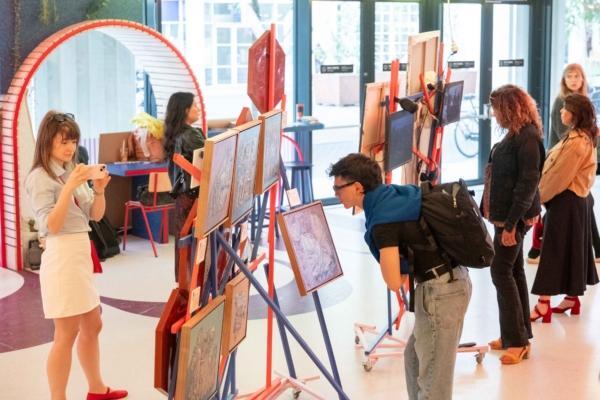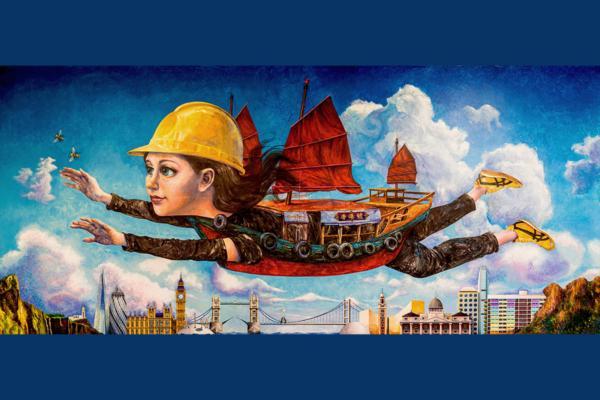“In July 2020, the implementation of the ‘National Security Law (NSL)’ no doubt officially turned Hong Kong into Xianggang and at the same time sent Hong Kong to the guillotine,” Professor Cheung Chan-fai, former head of the Department of Philosophy at the Chinese University of Hong Kong (CUHK), said. As a septuagenarian, now 73 years old, he still insists on speaking for freedom by “using the pen in place of a sword.”
In July 2020, Professor Cheung travelled to the UK and was to return to Hong Kong soon. However, due to the implementation of the NSL in Hong Kong, he heard the news that many pro-democracy activists, politicians, media reporters, and intellectuals had been detained and sentenced. In desperation, he chose to remain and settle in the UK.
For the remaining lectures and courses at the CUHK, he could only resort to teaching online. For the final philosophy class in May this year (2022), all 300 online places were fully booked. All new and old students came together to listen to the voice of the professor and remained for a long while after the lecture before leaving reluctantly. “My teaching career provides a lot of good feelings, as well as some emotion. Sometimes it brings happiness, sometimes a bit of sorrow.” For him, CUHK is a place full of memories. Free thoughts took root here. But as if it is part of all life, in the end, also needs to perish one day.
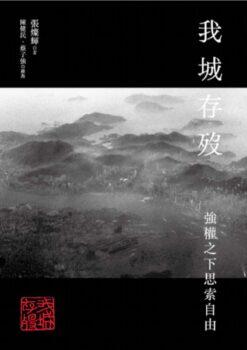
What Happened at CUHK Campus Makes Him Choose “The Pen as His Sword” Against Dictatorship.
Nov. 12, 2019, is a day that Cheung will always remember. “On this day, I was watching live TV at home and saw that my alma mater, CUHK, where I had been studying, living, researching, and teaching since 1970, was invaded by the Hong Kong police with our students brutally dealt with. I had to say I was inexplicably sad and angry at that moment,“ he recalled. Indeed, it was that same night he was invited to return to the school to give a speech on the topic of “Guarding the University, Protecting the Conscience.” But due to traffic jams, he was unable to enter the campus and missed it.The retired professor, in his 70s, instead chose to march with the young people along the Shing Mun River to the campus to show their support. In the middle of the night, a big crowd gathered under the statue of the Goddess of Democracy on the CUHK campus. The long human chain transporting supplies. There was starting to be restlessness and anxiety in the air, and the originally peaceful campus turned into a “battlefield” overnight. The police dispatched water cannons on the campus and fired more than 2,000 tear gas canisters and rubber bullets. Smokes and fumes were everywhere, and an urgent and chaotic scene ensued.
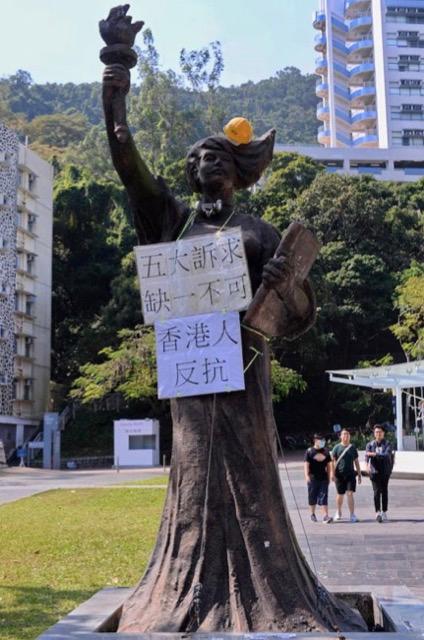
“My favourite CUHK, our ideal, a free and open campus, a place where academic autonomy is respected, I can hardly imagine such a disaster could happen in it!” Cheung has devoted his life to academic research, engraving, and photography. I never thought that I would make a political commentary, but now the flames of autocracy are burning at the door of his house, and this defenceless retired professor, a kind of “peaceful, rational, and non-violent” person who has to use his only tool available, which is “the pen in place of the sword” to express himself. ”The campus of CUHK can be destroyed, professors and students can be arrested, and the bronze statues of the two senior scholars can be removed, but the spirit and conscience of the university they represent will not and cannot be destroyed. The protection of the university and its conscience within those few days of resistance just shows all those virtues have never been forgotten,” Cheung wrote these words in grief and indignation. In the following days, he chose to come out and share his thoughts with the media, and successively accepted interviews with “Hong Kong Radio,” “The Epoch Times,” “Apple Daily,” “Stand News,” and wrote a series of articles expressing his views on the dictatorship.
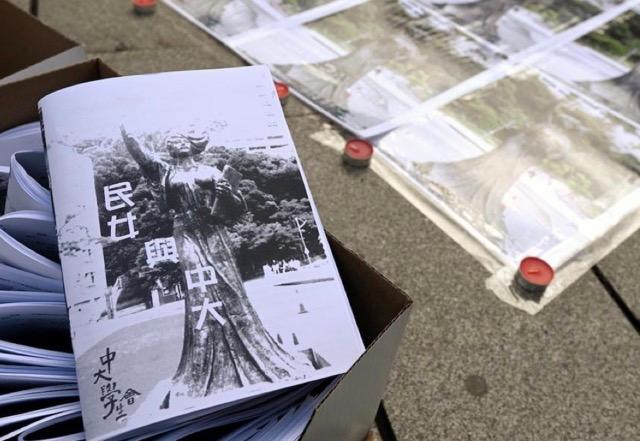
Professor Cheung took count of all the injustice he had witnessed in the past two years, and he chose to come out: “I watched how my friends changed from being the plaintiff to be the defendant in the ‘721 Incident;’ what happened to the 47-person case (the Hong Kong pro-democracy primary election ballot case). In both cases, we saw clearly how the regime could turn ‘black to white’ and target people retrospectively. And how do we deal with the truth when we face such things? I don’t just speak [the feelings of] my heart. I wrote a series of articles in the latter period and added in the deeds and thoughts of ancient philosophers in their heydays to understand what the wisdom thinkers of the past gave us to arm ourselves with ideas to deal with this absurd and unjust authoritarian dictatorship.”
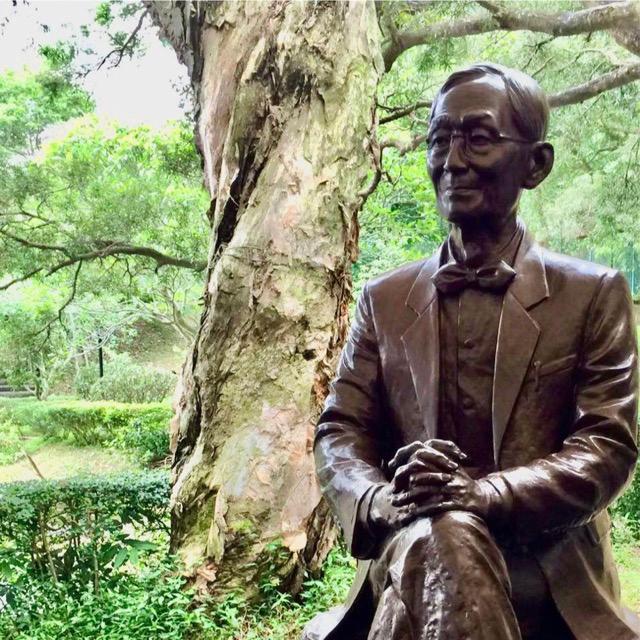
Professor Cheung is so familiar with “every blade of grass and every tree” at the CUHK. He describes that he has enjoyed the most free and beautiful era since the founding of the university, especially when he met his mentor Lao Sze-kwang, who opened the door to philosophy for him. He also taught him the need to have a solid backbone to be a man. For Cheung, there are no regrets. He recalled part of Lao’s teaching: “How can we intellectuals exist in such a totalitarian environment? Professor Lao taught us at least not to be the accomplices, not to help the tyrants, not to flatter, not to cheer and wave the flag (of the dictatorship).”
Obstacles Everywhere to Publishing Books, Invisible ‘Red Thread’ Tying HK
“My City Survives or Dies” has a first draft in October 2020. At the beginning, one Hong Kong publishing house agreed to publish it, but soon after taking over, it had concerns and declined to proceed further. Subsequently, another Hong Kong-based publishing house, “Hillway Culture,” was willing to do it. It was originally scheduled to be launched in June 2021 to match the timing of the large-scale Hong Kong Book Fair in July, when promotion through them would be easier and more efficient. It was a pity that the editor informed Cheung one month before the publication: “Sorry, Professor Cheung, we could not find a printing house in Hong Kong that dares to print this book, so it may be postponed.” Hearing this, Cheung was a little disappointed: “I am retired at an old age. A guy with no organisation links and no political KOLs (Internet celebrities), but just an article writer. How come it is so difficult to express an opinion! On the other hand, this is the mafia-type method of the Communist Party, which tries to make people feel afraid. As you never know where you might step on its ’red line,' and that will make you feel insecure and need to think twice about doing anything.”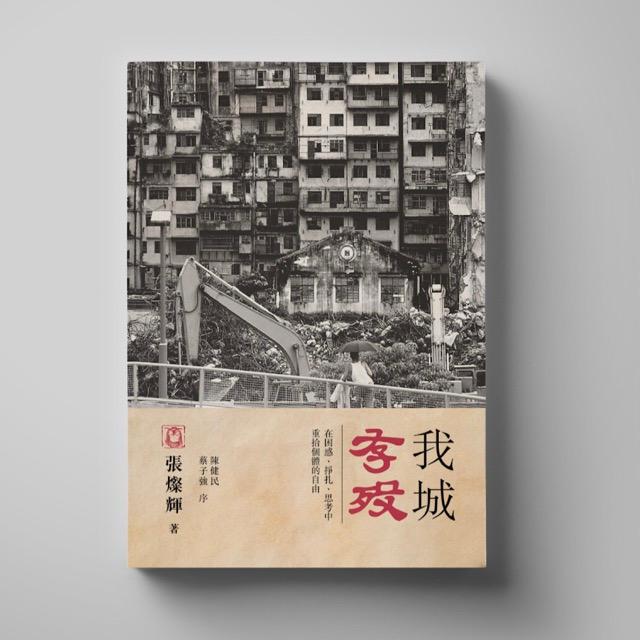
He Will Continue to Write, Ensuring the Fire of Freedom and Democracy Persists
Cheung is gratified that his book has been favoured by Taiwan’s “Rive Gauche Publishing House” and is willing to publish the second edition of it, with some articles revised. July 1, 2022, was specifically chosen for it to be put on the shelves to satirize the 25th anniversary of the handover of Hong Kong’s sovereignty. The civil society of freedom, the rule of law, openness, and diversity has disappeared. Cheung believes that “Hong Kong” has become a historical term, and now it should be better known as “Xianggang,” the Mandarin version of saying Hong Kong. This seems to be a better reflection of the actual situation here as it has lost its freedom and democracy, fast becoming just one of the many coastal cities on the mainland. He wrote in the preface of the reprinted book: “Xianggang is now: Lie is truth/Power is democracy/Obedience is freedom/Rule of man is the rule of law/Horses run, the dance continues, eat, drink and play remain peaceful and prosperous.”When talking about “My City” in the title of the book, we asked Professor Cheung if it represents Hong Kong, and he responded meaningfully: “Actually, this ‘My City’ is not only limited to Hong Kong, it is a proxy for identity, that is, ‘Where I am,’ a place that has a special relationship with you and me.” Nowadays, Hong Kong people emigrate to all parts of the world, but no matter where they are, they still have their own roots and their own “city.” The use of ”survival“ and ”death“ to describe life and death originates primarily from some philosophical concepts. The original idea came from Zhang Zai’s ”Xi Ming“ in the Song Dynasty: ”Richness, nobility, and fortune that enrich my life are all granted by god and my parents; poverty and obstacles, on the other hand, force me to work hard to bring about success in my career. During my life, I follow my conscience and do my best; when I die, I feel satisfied and leave with peace of mind.” When he entered his twilight years, Professor Cheung originally wanted to choose to stay aloof and not worry about world affairs, and just enjoy his retirement in peace. “I have no fear of death. After living a fulfilling life, I leave peacefully without any regret.” Words that were once used to describe a person’s attitude towards life have now been used by him to fit the turbulent society of today, something to describe the “life” and “death” of a city.
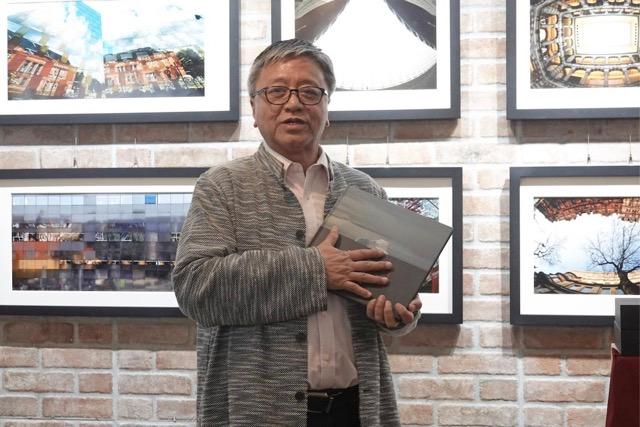
Looking back at his 40 years in Hong Kong’s academia, Cheung sighed: “It’s a very sad fact that in the past few years, there have been very few tertiary professionals who can stand up and speak the truth. Very few professor-grade personnel in the Hong Kong academia actively participated. This is a question worth reflecting on. As long as I am still around, I have my pen with me, and I will continue to use it. I am very grateful, I live much longer than either Confucius or Socrates. The world is changing forever, we can’t be separated from the world at large. As long as there is still fire in my heart, I will continue to write!”



